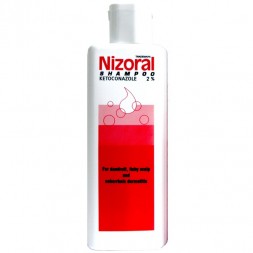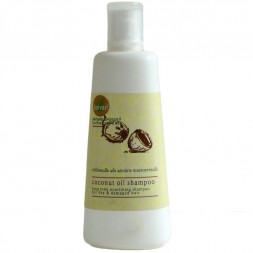
Maintaining a healthy scalp is essential for healthy and shiny hair so that it can continue to grow. However, many factors, including stress, pollution, lack of sleep, vitamin deficiency and hormonal changes, can affect the scalp's health. An effective way to keep your scalp healthy is by using Nizoral shampoo. In this article, we will discuss how Nizoral Shampoo can keep your scalp healthy.
Your scalp's health plays a significant role in the appearance and health of your hair. Many factors can affect the scalp's health, including dandruff, scalp psoriasis, seborrheic dermatitis, and scalp acne. These conditions can cause itchiness, flakiness, and redness on the scalp, leading to hair fall and other hair-related problems. Nizoral shampoo is a dedicated shampoo that can help treat and prevent these conditions, keeping your scalp healthy.
What is Nizoral Shampoo?
Nizoral shampoo is an antifungal solution used to treat dandruff and seborrheic dermatitis. The active ingredient in Nizoral shampoo is ketoconazole, which works by preventing the growth of fungi that cause dandruff and other scalp conditions.
Benefits of Using Nizoral Shampoo
There are many benefits to using Nizoral shampoo. Here are some of the benefits:
- Treats dandruff: Nizoral shampoo is effective in treating dandruff, a common scalp condition that causes flakiness and itchiness.- Prevents scalp conditions: Nizoral shampoo can help prevent scalp conditions like seborrheic dermatitis, scalp psoriasis, and scalp acne.
- Improves hair health: By keeping your scalp healthy, Nizoral shampoo can help improve your hair's health and appearance.
- Easy to use: Nizoral shampoo is available over the counter, making it easy to purchase and use at home.
How to Use Nizoral Shampoo?
Using Nizoral shampoo is easy. Here's how to use it:
- Wet your hair and scalp thoroughly.- Apply a small amount of Nizoral shampoo to your scalp.
- Massage the shampoo into your scalp, lathering it well.
- Leave the shampoo on your scalp for 3-5 minutes.
- Rinse your hair and scalp thoroughly.
- For the first 2 to 4 weeks: use every 3 or 4 days to clear dandruff. Thereafter: use once every 1 or 2 weeks to prevent dandruff from coming back.
Precautions to Consider While Using Nizoral Shampoo
While Nizoral shampoo is safe, there are a few precautions you should consider while using it. Here are some of the precautions:
- Avoid getting Nizoral shampoo in your eyes. If it gets into your eyes,- Rinse your eyes thoroughly with water.
- Do not use Nizoral shampoo on broken skin.
- Keep Nizoral shampoo out of reach of children.
Frequently Asked Questions (FAQs)
Is Nizoral shampoo safe to use?
Yes, Nizoral shampoo is generally safe to use, but like any medication, it can cause side effects. Consult your doctor if you experience any side effects while using Nizoral shampoo.
How often should I use Nizoral shampoo?
For the first 2 to 4 weeks: use every 3 or 4 days to clear dandruff. Thereafter: use once every 1 or 2 weeks to prevent dandruff from coming back.
Can Nizoral shampoo be used on colored hair?
Yes, Nizoral shampoo can be used on colored hair.Conclusion
Maintaining a healthy scalp is essential for healthy and shiny hair. Nizoral shampoo is an effective way to keep your scalp healthy by treating and preventing scalp conditions like dandruff and seborrheic dermatitis. By following the instructions and precautions, you can use Nizoral shampoo safely and enjoy its many benefits.
Get it Now: https://nizoralshop.com/home/23-nizoral-shampoo-100ml-35-oz-2-ketoconazole.html
If you want to keep your scalp healthy, try using Nizoral shampoo. It's an easy-to-use solution that can treat and prevent scalp conditions, improving your hair's health and appearance. By following the instructions and precautions, you can use Nizoral shampoo safely and enjoy its many benefits.
Check out our last news: 7 Exercises to Get Rid of Lower Back Pain
Related articles that may interest you: What is Dandruff?
4 Benefits of Using Scalp Massaging Shampoo Brush
Always seek the advice of your physician or other qualified health provider with any questions you may have regarding a medical condition. The material appearing on this page is for informational use only. It should not be used as a substitute for professional medical advice, diagnosis or treatment.





